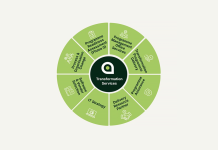Philip Turvey, executive director at Anglia Research, explores how the pandemic has accelerated the digitalisation of legal practices
The pandemic threw a spanner in the works for many businesses. The hospitality and retail industries were forced to temporarily shut down and to remain profitable had to find new ways to trade whilst obeying lockdown restrictions (many turned to eCommerce or meal kit deliveries).
The legal sector was also impacted and was forced start operating virtually, even though traditionally it’s not been known for being at the forefront of digital transformation. Yet, the legal sector adapted to survive and arguably ‘thrived’. So, will the digitalisation of the legal sector, in particular the probate industry, carry on in the post-Pandemic world?
All sectors have adapted in some respect
The legal sector is not the only sector that had to adapt quickly during the pandemic. Many retailers have had to develop eCommerce platforms swiftly, with ones that failed to do so reporting disappointing sales, such as the retailer Ted Baker.
The justice system in the UK also had to make the shift from criminal and civil in-person court judges to online judgments. This shift was made quickly to ensure the system did not fall apart. The courts turned their attention to video conferencing calls and online services to ensure hearings/ judgements could continue as ‘normally’ as possible. This was also the case for many probate genealogy firms who started to use video conferencing, for the first time, to ensure they could continue working during the pandemic.
Probate Genealogy & digitalisation aren’t the perfect match…
Probate genealogy, also known as heir hunting, is the practice of investigating and locating entitled relatives and demonstrating their right to an inheritance if someone has died intestate and with no known next-of-kin. Many probate firms locate the rightful next-of-kin of an unclaimed estate by looking through historical records and re-constructing family trees. The pandemic has meant many probate firms have had to move away from more traditional methods of locating rightful heirs and adopt entirely new, virtual methods.
What does the future hold for probate firms?
Anglia Research has had to adapt to the ‘new normal’ and quickly started to use videoconferencing systems like Skype or Zoom, similar to the court system.
This shift from in-person to digital took place quickly as the pandemic was causing more people to die intestate and with no known relatives, meaning probate genealogist services were in high demand. Our FOI report– which surveyed all local authorities in England and Wales – found the number of people dying in this situation and where a public health funeral was conducted, rose by 60% between March and May last year, with 12% of councils reporting an occurance for the first time. Similarly, our Unclaimed Estates Index found there were 216 and 176 unclaimed estates in Birmingham and Camden, respectively, in December 2020.
Anglia Research, and other probate firms’, transition to digital practices helped to cope with the increased number of cases by creating a streamlined, more efficient system allowing for more rightful beneficiaries to be found as a faster rate.
Streamlining the probate genealogy process may be the way forward, however, many firms, including Anglia Research, are experts in studying physical records and this expertise shouldn’t abandoned for a new ‘quick fix’. An equilibrium needs to be found by combining traditional expertise with modern streamlined methods.
As the world starts to move into a ‘post-pandemic’ state and businesses start to re-open and social restrictions are steadily dropped, probate genealogy firms need to establish key learnings from the pandemic. The digitalisation of some sectors had been phenomenal and for the probate sector it’s shown how the sector can be streamlined, however some practices cannot be digitalised, and the industry should aim to find a ‘hybrid’ way of working using their expertise, alongside digital practices adopted during the pandemic.











